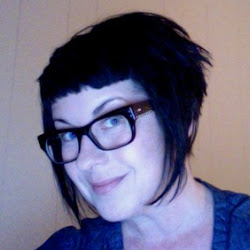 Today’s guest post is by Lindsay Bell.
Today’s guest post is by Lindsay Bell.
Jason Konopinski is a funny guy.
He’s an even funnier guy when he uses words like ‘ding-danged,’ as he did in a recent Facebook post.
To quote: “Bloggers, for all that is good and holy, COPYEDIT YOUR DING-DANGED POSTS.”
While that status update sparked some great chatter around ‘writers – vs – authors’ and whether any monkey with a typewriter can publish a book these days, it boiled down to one undeniable fact: Writers – any writers – need editors.
Blame Your Brain
According to The National Geographic, our brains are hardwired to make sense of what we see, hear, smell, touch, and taste, and (this is important) it’s hardwired to fill in missing pieces with whatever our expectations suggest should be there. It’s evolution, baby. And it makes it very difficult to edit one’s own work.
As mentioned above, that’s why those ‘if you can read this {gobbledygook}…’ posts are so much fun. When you attempt to self-edit, your brain automatically relies on hundreds of thousands of years of wiring. Nine times out of 10 your brain will ‘see’ your grammar, spelling, or verbiage as correct, even if it isn’t. Your brain already knows what it’s looking for; it wrote it in the first place! D’uh.
It’s not that hard to counteract these unconscious brain corrections. One little trick I use is to read my work backwards, and from bottom to top. This is a great way to see spelling errors and the like, because your mind isn’t making sense of these seemingly random words. However, it doesn’t help you correct odd turns of phrase, or things such as punctuation errors.
Mistakes Cost Money
That said, there are many other reasons why a great editor is a treasure to have on standby.
MarketingProfs shared a fascinating tidbit from the UK. After a spelling error was corrected at tightsplease.co.uk, the online retailer’s revenue per visitor doubled. In this case, poorly written copy clearly registered, consciously or not, as the potential for shoddy business practices.
An experienced editor understands everything has a voice, and whether you’re writing for a brand, magazine, newspaper or corporate blog, he/she will a) know that voice intimately and b) ensure continuity of that voice.
This is extremely important as your most loyal customers/readers will be expecting consistent, quality content. They won’t appreciate The National Enquirer if they are expecting The New York Times.
What an Editor Brings to the Table
- Editors watch out for the basics such as awkward run-on sentences, grammatical and spelling errors, and other run-of-the-mill writing issues. But they also look for the overall structure of the piece, such as flow and readability. You might have buried the lead, mixed metaphors, or your third paragraph might be more suitable as your opener. Yes, your work might be changed, and if you can’t deal with that you shouldn’t be writing.
- They keep their eyes peeled for accuracy, fairness, redundancy, and taste. Your editor will either fact check your work, or ask you to provide links to quoted articles. Of course, your work should already have been checked and rechecked prior to submitting it to your editor. Pay special attention to people’s names and titles.
- An editor’s goal is to protect the writer (you) and by extension, the project or organization. A good editor will read through the eyes of their audience, and will never assume the audience knows what you’re talking about. So, if you make a big, bold, sweeping statement, expect to be challenged on it and be prepared to back it up with statistics/proof. If you can’t back it up, it shouldn’t be published.
I understand people are human beings who make typos and other mistakes. I want people to have fun with language, inject life into their writing, or even break a few old-school grammar rules. Most of us, these days, write as we speak, and none of us speak like our fifth grade grammar workbooks. But still, it seems like these days, we are seeing more quantity over quality. And no matter the pace of the world we all live in today, quality still matters.
Lindsay Bell is the content director at Arment Dietrich, and works in Toronto. A former TV producer, she’s a strong advocate of three minutes or less of video content. She has a cool kid, a patient husband, two annoying cats, and the newly adopted Hank, a vizsla and foxhound mix, who arrives very soon!